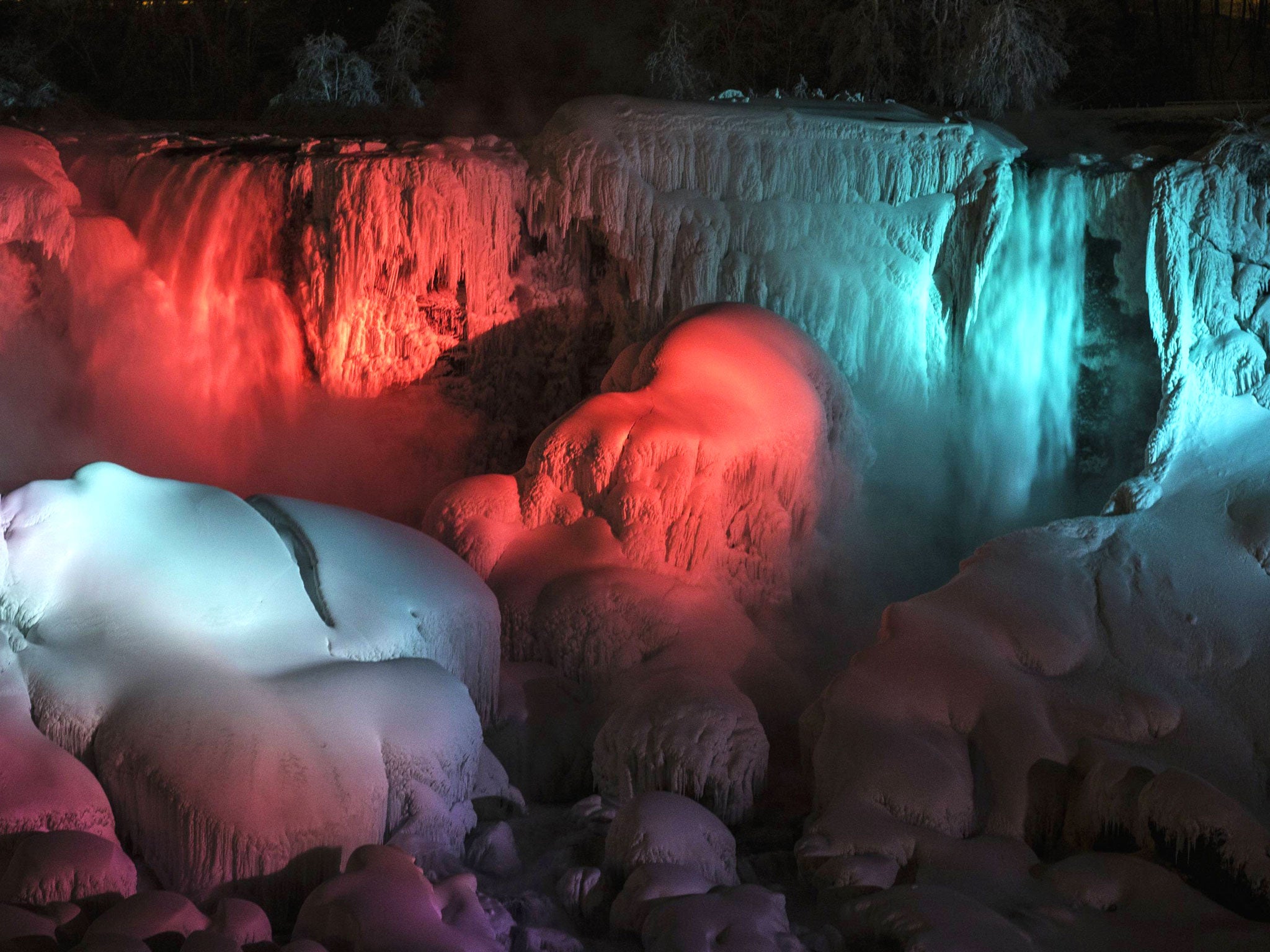Niagara Falls freezes for second time as US East Coast shivers in record-breaking winter cold
Remarkable images taken of the falls at night show them partially frozen and lit up in an array of bright colours

Your support helps us to tell the story
From reproductive rights to climate change to Big Tech, The Independent is on the ground when the story is developing. Whether it's investigating the financials of Elon Musk's pro-Trump PAC or producing our latest documentary, 'The A Word', which shines a light on the American women fighting for reproductive rights, we know how important it is to parse out the facts from the messaging.
At such a critical moment in US history, we need reporters on the ground. Your donation allows us to keep sending journalists to speak to both sides of the story.
The Independent is trusted by Americans across the entire political spectrum. And unlike many other quality news outlets, we choose not to lock Americans out of our reporting and analysis with paywalls. We believe quality journalism should be available to everyone, paid for by those who can afford it.
Your support makes all the difference.The bitterly cold weather that currently has much of the East Coast of America in its icy grip has demonstrated its chilling intensity by partially freezing Niagra Falls for the second time in just weeks.
Remarkable images taken of the falls at night show them partially frozen and lit up in an array of bright colours. The falls on the American side, which in combination with the Bridal Veil Falls usually see the passage of 567,811 Litres per second, have frozen amid temperatures of -1 degrees and lower.
It is the latest in a series of weather systems caused by a so-called 'polar vortex' which is pummelling the winter-weary eastern United States. A polar vortex is a rotating pool of cold, dense air held in place by strong winds.
This year the polar air has slipped through the belt that usually holds it in place. This has meant plummeting temperatures as far south in the US as Alabama.
Brian Hurley, a weather service meteorologist, said temperatures would be about 30 degrees Fahrenheit (15 degrees Celsius) below normal as a cold front settled in from Great Plains to the Atlantic coast.
"It’s really, really cold, temperatures dropping into the teens (Fahrenheit, minus-7 to minus-10 Celsius) and the normal highs are around 50 (10C) at this point," he said.
At least four weather-related traffic deaths in Texas, Oklahoma and Tennessee were blamed on the wide-ranging storm over the weekend.
Join our commenting forum
Join thought-provoking conversations, follow other Independent readers and see their replies
Comments